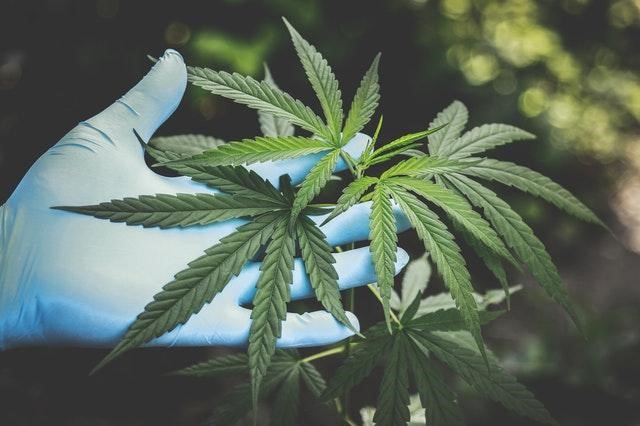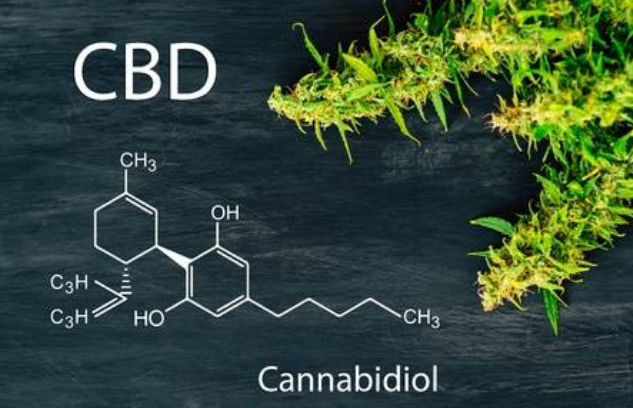Why CBD treatment is so effective?
While the benefits of medical cannabis and CBD are undeniable, there are still plenty of people who try to downplay the benefits and bring up scare stories about the plant. This is unsurprising, since the wave of negativity that began in the 1960s has stuck with many, however it is disingenuous and unhelpful to those who could truly benefit from cannabis-based therapy.
In this post, we’ll investigate what makes CBD and cannabinoid medicine so unique and explain why we are much more confident about the therapeutic qualities of the herb now than we were decades ago.
Why CBD does not cause anxiety and paranoia
Before we look in-depth at the workings of the body’s endocannabinoid system (ECS), the fears that CBD could make the user anxious or paranoid can be dispelled with a basic understanding of the cannabis plant. Cannabis is not a single compound, but a plant made up of more than 400 compounds. The most influential of these are cannabinoids, because of their chemical likeness to the endocannabinoids that are produced by the body to interact with the ECS.
Delta-9-tetrahydrocannabinol (THC) and cannabidiol (CBD) are both cannabinoids – the former can alter consciousness with its psychoactive properties, while the latter is strictly non-psychoactive. Psychoactivity can be a double-edged sword. In the right set and setting, it can enhance feelings of happiness, which is why cannabis makes some people happy and euphoric. However, the wrong scenario or simple chemical imbalance can worsen negative emotions. And even having reservations about taking cannabis can manifest into an uncomfortable trip.
Unfortunately, many people are not aware of these factors, and scaremongering rarely focusses on the actual cannabinoids and their effects. But knowing that CBD products aren’t going to intoxicate or influence the mind is enough to break down this anti-cannabis argument.
More on the endocannabinoid system
So just what is the endocannabinoid system? It’s a network made up of lipid-based neurotransmitters and receptors that regulate bodily functions. Essentially, the neurotransmitters are the keys and the receptors are the locks. When a neurotransmitter binds to a receptor, it sends out an instruction, which the body then acts upon.
The key cell receptors in the ECS are cannabinoid receptor 1 (CB1) and cannabinoid receptor 2 (CB2). The body makes endocannabinoids which connect with these receptors. The primary endocannabinoid is anandamide and is likened to the THC cannabinoid in cannabis. Anandamide binds with CB1, and THC can make the same link.
Israel’s Raphael Mechoulam first discovered THC in the 1960s, and that set the foundation for discovering anandamide in the 1990s. After isolating THC, Mechoulam worked to establish how cannabinoids function in the body, and his research led him to the finding that we produce our own cannabinoid-like compounds – endocannabinoids.
Because cannabinoid receptors are found throughout the body, they serve a multitude of functions. CB1 receptors are expressed more in the brain and central nervous system than anywhere else, while CB2 receptors are found predominantly in the peripheral nervous system, gastrointestinal tract and on immune cells, hence why CBD can have an effect on the immune system.
Mood, appetite, pain, memory, sleep, immune system response and the reproductive cycle are just a few areas where the endocannabinoid system holds influence, and this explains why CBD can have a medicinal effect on such a wide range of conditions.
The role of endocannabinoids is to send messages to the body to increase appetite, calm down the immune system and so on. They help the body to stay in homeostasis, or balance. However, when the endocannabinoid system is off set, this balance can be lost. With a well-functioning ECS key to good health, disruption in this system can cause plenty of problems.
Among these are migraines and fibromyalgia, illnesses which have been suggested to be called by a disease called Clinical Endocannabinoid Deficiency (CECD). The theory is that some people do not create the necessary endocannabinoids to ensure that the ECS is properly regulated, and that this makes them more vulnerable to suffering from certain conditions.
How to make up for endocannabinoid deficiency
There are a few ways to remedy an ECS that isn’t producing enough endocannabinoids. Increasing consumption of essential fatty acids such as omega-3 is beneficial. Indeed, animal studies have linked endocannabinoid dysregulation and a lack of omega-3 to mood swings. But while upping the intake of omega-3, perhaps through hemp seeds or cod liver oil capsules is helpful, phytocannabinoids (cannabinoids from plants, e.g. cannabis) such as CBD can be even more effective.
The simplest interaction in the ECS is the connection between cannabinoids and cannabinoid receptors – but CBD has a much more indirect and nuanced impact. The body consists of enzymes, some of which break down endocannabinoids into other substances. Sometimes this process is useful, but in the case of anandamide and the fatty acid amide hydrolase (FAAH) enzyme, it often isn’t.
However, CBD has the power to shut off the FAAH enzyme, so that is unable to degrade anandamide at the same rate. Therefore, administering CBD to the body helps to increase levels of anandamide – the endocannabinoid which can bind perfectly with cannabinoid receptors and keep the ECS regulated – meaning there is more of it to link up with receptors. The mood-boosting effects of CBD now make perfect sense, since anandamide is an antidepressant.
Considering that vaping CBD e-liquid is the fastest and most efficient (in terms of bioavailability) method of intaking CBD, vaping is the best way of regulating an out-of-sync ECS. For those who have a less pressing condition to treat, CBD edibles provide a more sustained effect. Conversely, you’ll have to re-dose every three or four hours with vaping, but the effects are that much more potent.
Final thoughts
Researchers are a long way from understanding the true complexity of the endocannabinoid system, but each new study tells us a little more about the effects of cannabinoids like CBD in the human body.
In the past, experts were often baffled by the fact that cannabis could have a positive effect on so many conditions that appeared to have nothing in common – for instance, anxiety and irritable bowel syndrome. But now we know that the body has a massive system that affects our mental and physical health, this mystery has been solved. There is a bright future ahead for CBD medicine.







